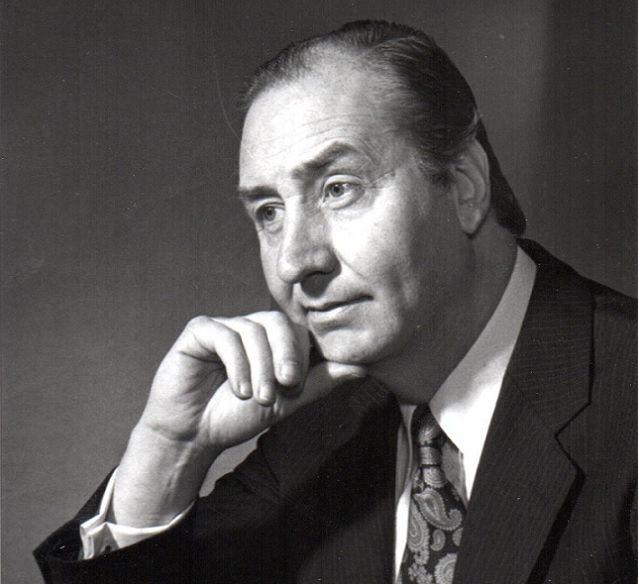
24: Geoffrey Brand (1926 – 2023)
Geoffrey Brand was perhaps the last of the great polymath musicians to dominate the brass band movement.
And dominate he did.
In purely contesting terms he led the then Black Dyke Mills Band to two British Open victories and a brace of National titles - the latter in 1972 securing a rare ‘Double’, as well as a World Championship success in 1970.
Later, he added further British Open wins with Brighouse & Rastrick in 1978 and with Grimethorpe Colliery Band in 1984.
They were however just a small part of a CV that spanned numerous activities – from performer and conductor to arranger, author, publisher, newspaper editor, BBC producer, educator, lecturer, advisor and businessman.
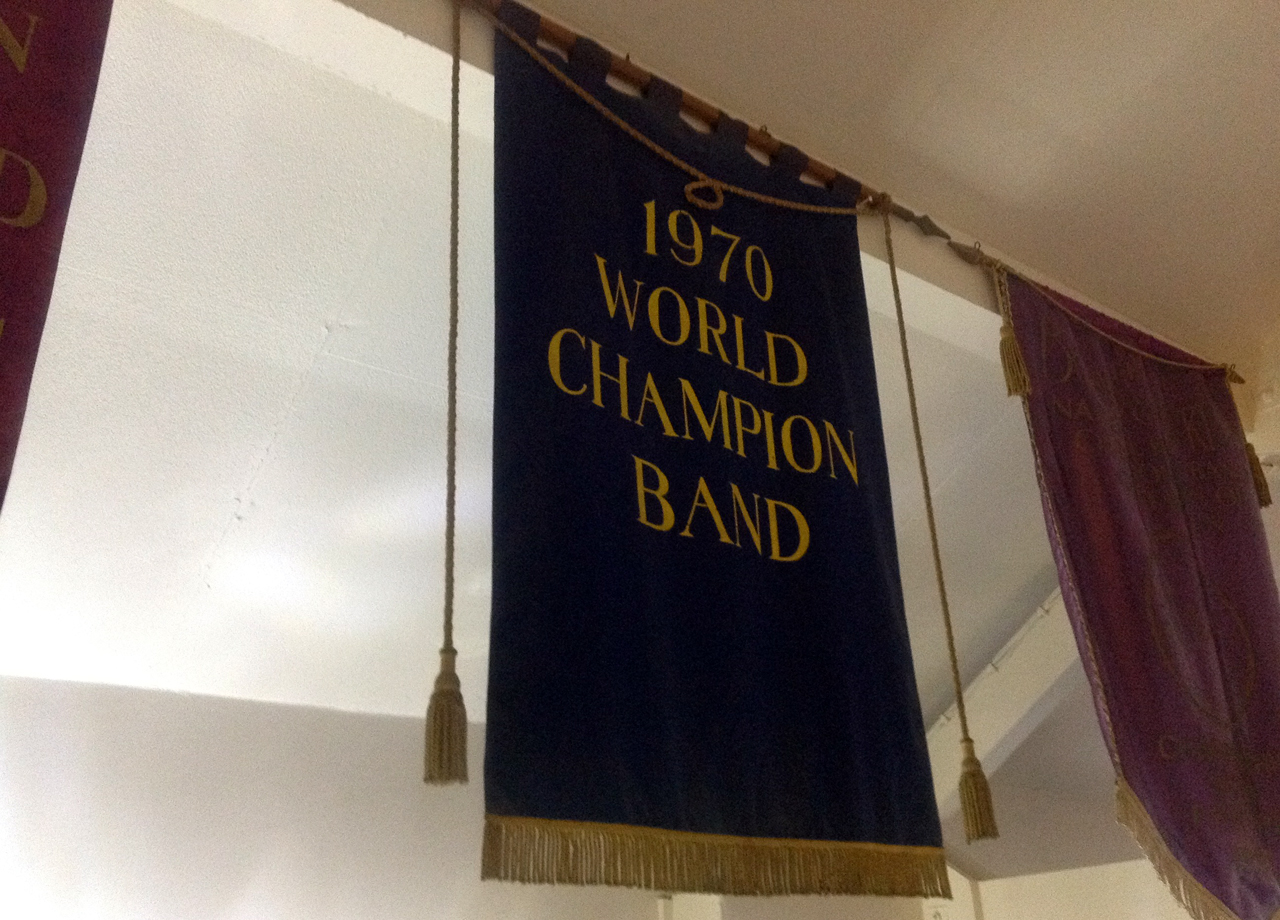
The ultimate contesting accolade was won in 1970
Inspirational force
Born in Gloucester in 1926 (the burr in his accent never left him) into a Salvationist family, music was the inspirational force of his early life.
Although opportunities were limited, the advent of the War brought Geoffrey into contact with William Overton, Principal Trumpet with the BBC Symphony Orchestra and a Professor at the Royal Academy of Music who was stationed at a nearby RAF base.
In exchange for extra food rations from the family, Overton gave him free cornet lessons. It was the catalyst.
In exchange for extra food rations from the family, Overton gave him free cornet lessons. It was the catalyst.
Soon he became proficient and then excellent, and with a commitment to succeed that was marked throughout his life, in 1944 he successfully applied for a Trumpet scholarship to The Royal Academy of Music.
The importance of sound
Put on hold as he was drafted into the Band of the Royal Army Service Corps, any disappointment was soon forgotten as he met numerous outstanding musicians. On discharge he studied with the great George Eskdale, who, Geoffrey said, taught him ‘the importance of sound’, which guided his approach to music- making throughout his life.
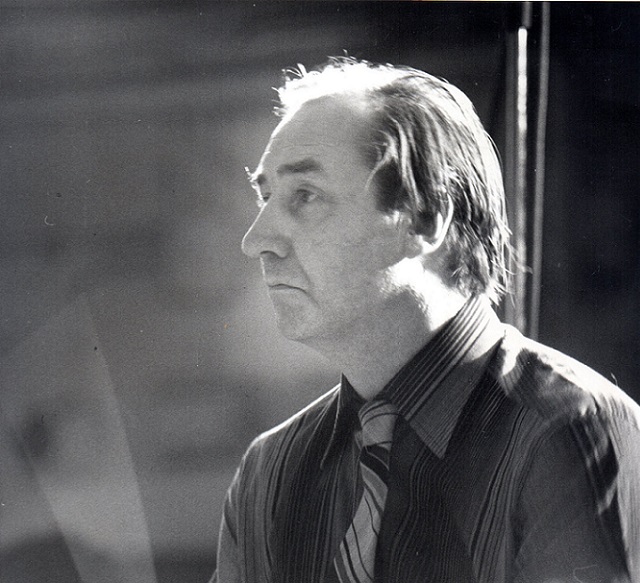
A razor sharp baton at the ready
Violet match
It was whilst he was a student living in Lewisham with the Overton family that he met his future wife, Violet Boughton, who was studying to be a teacher. They married in 1950 – a love match that lasted the rest of their lives.
Now a freelance trumpet player, after he and Violet arrived back from their honeymoon he received an invitation to join the Royal Philharmonic Orchestra for a three-month tour of the USA under Sir Thomas Beecham. With her support (which was reciprocated in each other’s professional endeavours) he left immediately.
It was to be a seminal experience, and led him at the age of 24, to follow his passion for conducting. It hallmarked an ethos of ‘Decide what you really want to do – then do it’ that he shared with young musicians for the rest of his life.
It was to be a seminal experience, and led him at the age of 24, to follow his passion for conducting. It was an ethos of ‘Decide what you really want to do – then do it’ that he shared with young musicians for the rest of his life.
Ever business like, he took a permanent job in the trumpet section at the Royal Opera House, staying for five years to supplement his conducting endeavours and a family that had seen the arrival of children, Michael and Gill.
BBC Producer
In the 1950’s BBC employment allowed the pursuit of other musical activities, but eventually he gave up playing in 1955 to become a full time producer for the BBC Light Programme.
Although less well paid than his trumpet career, his 12 years at the BBC was priceless in widening his musical horizons; commissioning composers and arrangers including Malcom Arnold, Gilbert Vinter (who he described as ‘a bit of a sort of Berlioz’) , Ron Goodwin and Robert Farnon.
He ran the annual BBC Light Music Festival at the Royal Festival Hall, as well as producing ‘Friday Night is Music Night’.
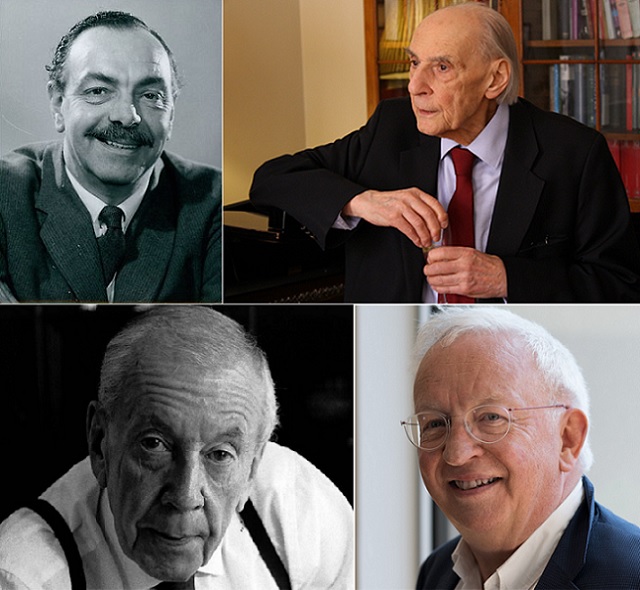
Vinter, Horovitz, Arnold and Gregson all benefited from their working connection with Geoffrey Brand
Conducting talent
His conducting started to flourish – first with the John Dickinson Band at nearby Hemel Hempstead (where he led them to the London & Southern Counties Second Section Regional title in 1961), but later with the likes of Crookhall Colliery, Cory Band and Hanwell.
He once revealed that in order to learn from great brass band conductors he spent a week watching Alex Mortimer conductor CWS (Manchester) in afternoon concerts at London’s Embankment Gardens. It paid off.
He once revealed that in order to learn from great brass band conductors he spent a week watching Alex Mortimer conductor CWS (Manchester) in afternoon concerts at London’s Embankment Gardens. It paid off.
What to do
His name as well as his talent was being monitored, and with the BBC undergoing one its periodic ‘reshuffles’, Geoffrey Brand once again ‘decided what to do – and did it’. He left the Corporation in 1967.
It was to be a serendipitous decision.
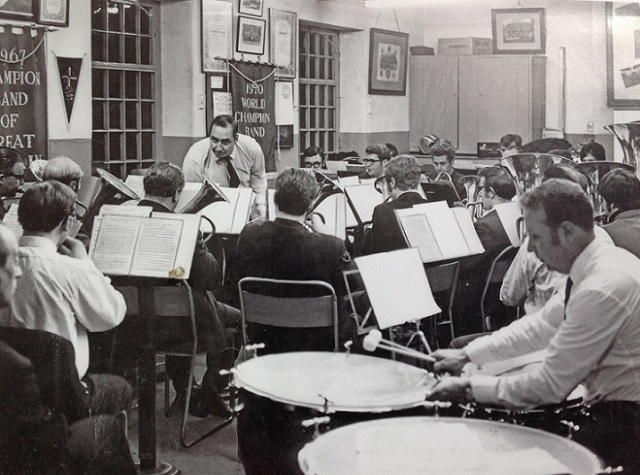
At work with Black Dyke
Queensbury invitation
Black Dyke Mills Band were booked for an imminent Radio 3 broadcast, but were without a professional conductor. An agreement was reached that Geoffrey would be engaged for the job. The band was impressed by his professional approach (he had earlier in the year led Crookhall to the North of England top section Area title), that an invitation came to lead them at the 1967 National Finals.
Black Dyke had not won at the Royal Albert Hall since 1961. October 14th 1967 was to become a pivotal moment for both parties.
Quite miraculous
The victory on Eric Ball’s ‘Journey into Freedom’ was memorable enough. He later recalled that the band rehearsed at the Grenadier Guards bandroom and on the Friday night the famous Lento passage finally fell into place. “It was so ethereal,” he said. “It seemed quite miraculous.”
What followed became iconic.
He later recalled that the band rehearsed at the Grenadier Guards bandroom and on the Friday night the famous Lento passage finally fell into place. “It was so ethereal,” he said. “It seemed quite miraculous.”
At the age of 41 he had scaled his first brass band summit. More were to be conquered in the years that followed and he was presented with the Iles Medal.
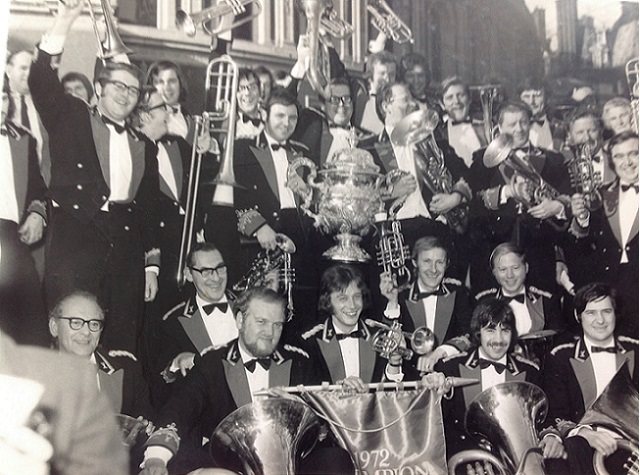
The 'Double' is achieved in 1972
As Professional Conductor he took the opportunity to transform the musical outlook of the Queensbury band (even working on a pop release with former Beatle, Paul McCartney).
As Professional Conductor he took the opportunity to transform the musical outlook of the Queensbury band (even working on a pop release with former Beatle, Paul McCartney).
Outstanding legacy
Working closely with Roy Newsome, they pursued the highest performance standards, creating a legacy of outstanding recordings, taking part in high profile festivals (both home and abroad) and commissioning new works for the medium.
A man who knew the value of good publicity, the band even appeared on the hugely popular BBC children’s programme ‘Blue Peter’.
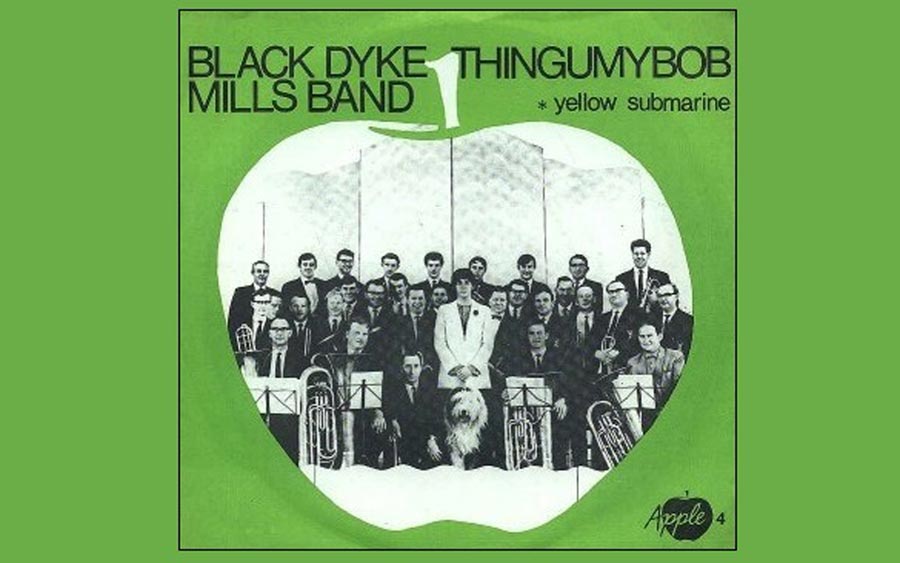
New musical avenues
Commanding
He was a commanding, at times brooding presence in front of a band.
Players immediately knew they were there to work in a professional manner. His technique was flawless and razor sharp; one second compact and minimalist, the next exploding in long sweeps of expression.
The respect has enhanced by his insight and understanding of whatever musical score he explored. He had a huge bank of musical knowledge and expertise underpinned by a passion to communicate and inspire.
Players immediately knew they were there to work in a professional manner. His technique was flawless and razor sharp; one second compact and minimalist, the next exploding in long sweeps of expression.
National Youth Band
That saw him follow Dr Denis Wright as Music Director of the National Youth Brass Band of Great Britain and later hold the same role with the National Brass Band of Scotland for over 20 years. His commitment to both was immense and he remained an active advisor and trustee of the National Youth Brass Band until well into his eighties.
He also conducted several other ensembles, including the City of London Brass, and the City of London Wind Ensemble, and was a past Chairperson and Life President of the National Concert Band Festival.
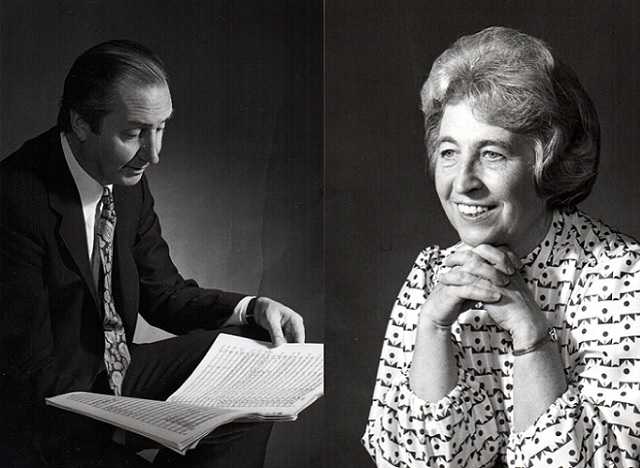
Perfect partners: Geoffrey and Violet Brand
Prospered
Together with Violet (alongside Ray Dutfield and his wife) they purchased R Smith & Co and ‘The British Bandsman’ newspaper in 1967 and set about modernising both.
The two companies prospered. Geoffrey became Music Editor of R Smith & Co and Editor of 'British Bandsman', although Violet was the co -Editor and day to day driving force, as he was happy to acknowledge.
Young composers
Meanwhile, the R. Smith Music catalogue was revitalised with works from new young composers such as Edward Gregson, Philip Sparke and Gareth Wood as well as significant contributions of his own.
His arrangement of Berlioz’s ‘Le Corsair’ overture remains one of the most played to this day and was performed at the BBC Proms in 2022, whilst his realisation of Dvorak’s ‘Carnival’ overture was used as the set-work for the 1980 National Championships.
The R. Smith Music catalogue was revitalised with works from new young composers such as Edward Gregson, Philip Sparke and Gareth Wood as well as significant contributions of his own.
During their tenure ‘The Bandsman’ became much more informed in its outlook and raised journalistic standards. Its circulation grew and despite the troubles of the printing trade in the mid-1970s, it once again become the voice of the banding movement, tackling issues and leading awareness on VAT and education policy.
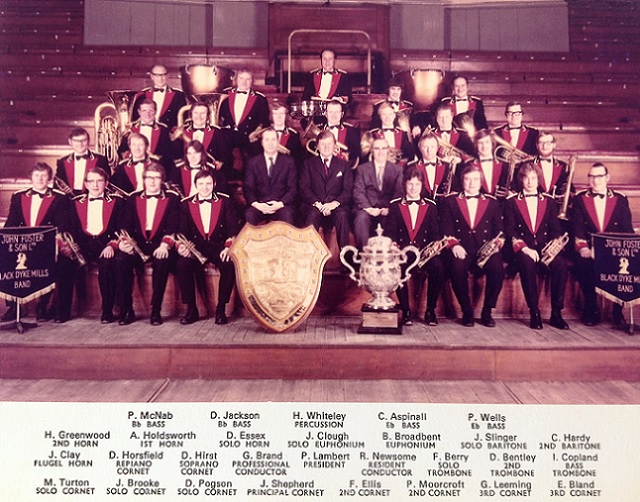
The crowning glory at Balck Dyke: The 1972 Double Champions
National Championships
In 1972 Geoffrey and Ray Dutfield were offered the opportunity to buy the National Brass Band Championships. With Peter Wilson as a respected administrator, it offered further opportunities, but ones that came with the necessity to rein back his conducting commitments.
He took bold decisions. In 1973 came the introduction of percussion at the National Finals as well as the Youth Championships at the Albert Hall replacing the early 5.00pm concert.
He and Peter Wilson wanted young players to experience playing there, whilst he also commissioned major works from Sir Malcolm Arnold and Robert Farnon as well as major concerto works from Ernest Tomlinson, Joseph Horovitz and Gordon Langford.
However, he readily acknowledged the conflicts of interest his various business interest brought, and albeit with great regret he took the decision to resign from his role at Black Dyke Mills.
Banding return
To clear a return to conducting the Brand and Dutfield families decided to sell the British Bandsman and National Championships in 1975, retaining publishers R Smith & Co. It enabled him to eventually return to his true vocation.
In 1978 he led Brighouse & Rastrick in winning the British Open (beating a double hat-trick chasing Black Dyke into second place). In 1984 he did it again (Dyke again as runner-up) with Grimethorpe Colliery Band.
Over the next decade or more he worked with many of the very best bands in the UK – GUS (winning he Midlands Area title in 1978), Brighouse & Rastrick (also winning the Yorkshire Area title in 1979), Wingates, Carlton Main (winning the Yorkshire Area title in 1982), Fairey Engineering, Grimethorpe Colliery and Sun Life amongst others. All were enhanced by his association with them.
In 1978 he led Brighouse & Rastrick in winning the British Open (beating a double hat-trick chasing Black Dyke into second place). In 1984 he did it again (Dyke again as runner-up) with Grimethorpe Colliery Band.
It was to be his last major contest victory. He later became an authoritative adjudicator much sought after across the banding world.
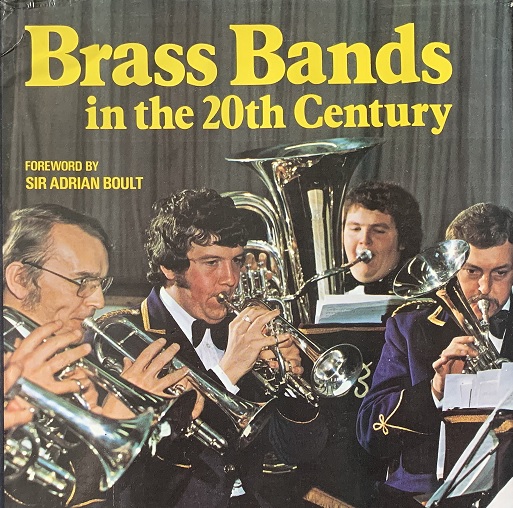
Book publication
Dual acclaim
Both he and Violet also went on to enjoy acclaim in different fields; he as a guest conductor, clinician and lecturer (sowing the seeds of long-term development in the emerging brass band nations of Europe, the USA and Japan), her as a hugely influential educational writer and publisher.
They travelled the world together – even to Russia on the Trans-Siberian Railway for their Silver Wedding anniversary.
They travelled the world together – even to Russia on the Trans-Siberian Railway for their Silver Wedding anniversary.
R Smith & Co flourished – increasing their worldwide profile distributing wind band music. Geoffrey and Violet published ‘Brass Bands in the 20th Century’ in 1979 to much considered acclaim, as well as ‘The World of Brass Bands’ in 1986.
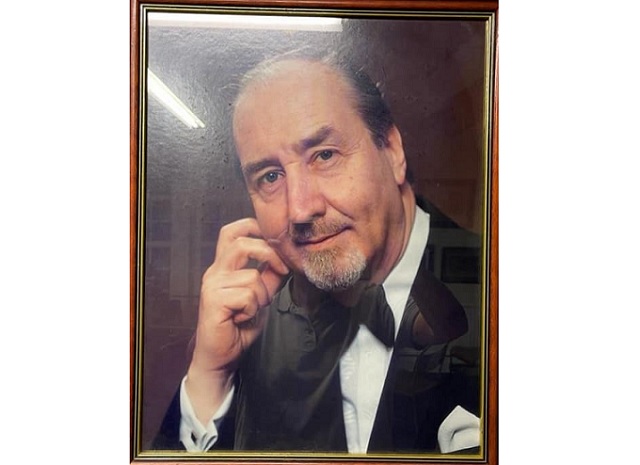
A portrait of reflection...
Desire
Any thoughts of retirement however never crossed his mind. More recent acknowledgements of his work included the International Award of the Midwest Clinic presented in Recognition of Outstanding Contributions and Dedication to Instrumental Music Education on an International Level, and the Grainger Award for services to the music of Percy Grainger.
His professionalism and desire for excellence never left him. Composers spoke of their respect for his conducting and critical analysis of their music, players of his ceaseless pursuit of quality – especially in sound and balance.
Many who played for him have said that he was a life-long inspiration in their own music-making.
He was as hard on himself as he was others. Fairness and equality underpinned his ethos.
Violet died in 2020, ending 69 wonderful years of marriage. He passed away peacefully at the age of 96 in February 2023. He is survived by his two children, Michael and Gill, his four grandchildren and eight great-grandchildren.
Many who played for him have said that he was a life-long inspiration in their own music-making.
That legacy would surely have delighted him.
Tim Mutum
With grateful thanks to Michael Brand
4BR Hall of Fame: No.1: Jack Atherton
https://www.4barsrest.com/articles/2019/1832.asp
4BR Hall of Fame: No.2: Albert Baile
https://www.4barsrest.com/articles/2019/1836.asp
4BR Hall of Fame: No.3: Stanley Boddington
https://www.4barsrest.com/articles/2019/1842.asp
4BR Hall of Fame: No.4: Bram Gay
https://www.4barsrest.com/articles/2020/1848.asp
4BR Hall of Fame: No.5: Leonard Lamb
https://www.4barsrest.com/articles/2020/1855.asp
4BR Hall of Fame: No.6: Arthur Stender
https://www.4barsrest.com/articles/2020/1866.asp
4BR Hall of Fame: No.7: Violet Brand
https://www.4barsrest.com/articles/2020/1871.asp
4BR Hall of Fame: No.8: Eric Bravington
https://www.4barsrest.com/articles/2020/1875.asp
4BR Hall of Fame: No.9: Norman Ashcroft
https://www.4barsrest.com/articles/2020/1879.asp
4BR Hall of Fame: No.10: Albert Chappell
https://www.4barsrest.com/articles/2020/1884.asp
4BR Hall of Fame: No.11: Betty Anderson
https://www.4barsrest.com/articles/2020/1889.asp
4BR Hall of Fame: No.12: Trevor Walmsley DFC
https://www.4barsrest.com/articles/2020/1897.asp
4BR Hall of Fame: No.13: Percy Code
https://www.4barsrest.com/articles/2020/1903.asp
4BR Hall of Fame: No.14: George Thompson MBE
https://www.4barsrest.com/articles/2020/1909.asp
4BR Hall of Fame: No.15: Willie Lang
https://www.4barsrest.com/articles/2020/1914.asp
4BR Hall of Fame: No.16: James Scott
https://www.4barsrest.com/articles/2021/1916.asp
4BR Hall of Fame: No.17: Jack Mackintosh
https://www.4barsrest.com/articles/2021/1922.asp
4BR Hall of Fame: No.18: Teddy Gray
https://www.4barsrest.com/articles/2021/1928.asp
4BR Hall of Fame: No.19: Rowland Jones
https://www.4barsrest.com/articles/2021/1932.asp
4BR Hall of Fame: No.20: Helen Perkin
https://www.4barsrest.com/articles/2021/1944.asp
4BR Hall of Fame: No.21: Lt Col Cecil H Jaeger OBE
https://www.4barsrest.com/articles/2021/1954.asp
4BR Hall of Fame: No.22: Alex Mortimer
https://www.4barsrest.com/articles/2021/1966.asp
4BR Hall of Fame: No.23: Henry Geehl
https://4barsrest.com/articles/2022/1987.asp













